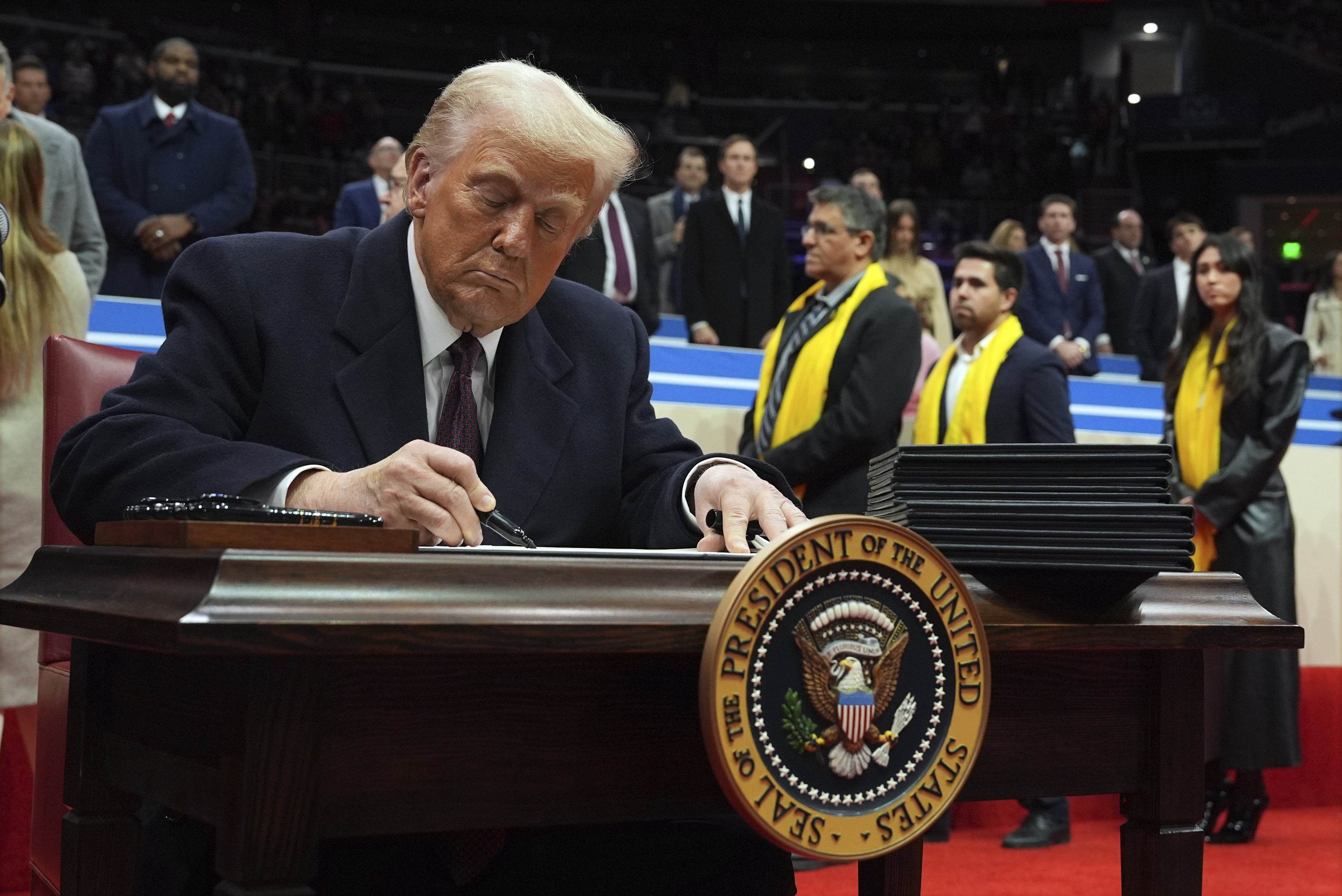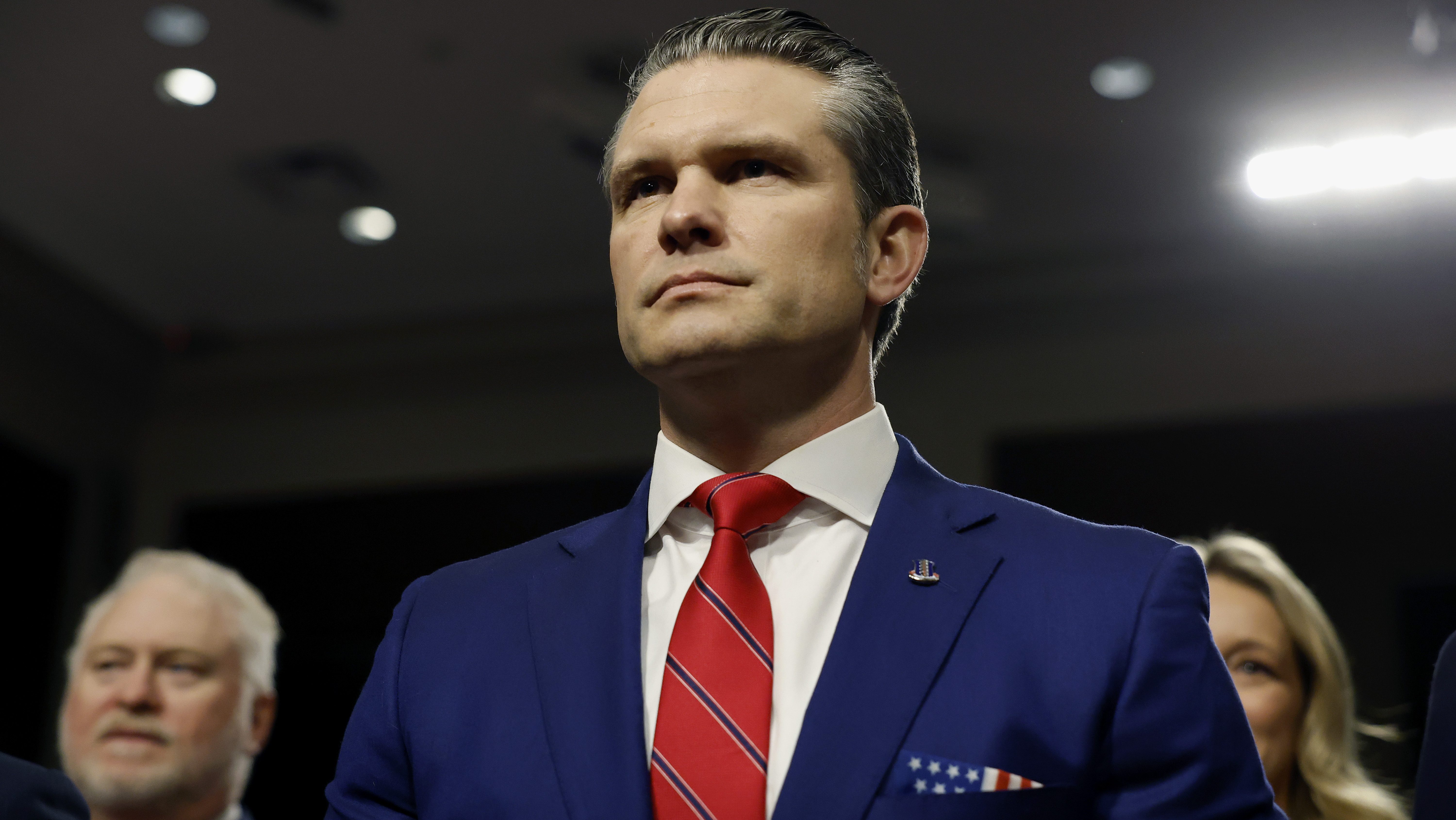Supreme Court Justice Anthony Kennedy will retire July 31. Kennedy was nominated to the Supreme Court by President Ronald Reagan in 1987.
What to Know
- Trump said he would start the effort to replace Kennedy "immediately."
- Republicans have a chance to make judicial nominees a top campaign issue.
- Trump deflected a question on whether he should wait until after the midterm elections to announce a successor to Kennedy.
The Senate battle over Donald Trump's Supreme Court nominee is off to a fiery start — even before the president makes his choice. Republican and Democratic leaders traded accusations and barbed comments Thursday on the new vacancy, abortion rights and the debate to come.
Both sides are quickly mobilizing after Justice Anthony Kennedy, whose votes have been key in deciding cases on abortion, affirmative action, gay rights, guns, campaign finance and voting rights, sent shockwaves through Washington Wednesday by announcing his retirement plans.
Republicans are pressing for speedy action — assuming Trump makes a quick announcement of his pick — but Democrats argue that the confirmation action should be put on hold until after the November midterm elections. The Democrats are citing Senate GOP leader Mitch McConnell's successful block of President Barack Obama's nominee to the court, Merrick Garland, in 2016. Republicans argued the seat should be left open because it was a presidential election year.
Senate Minority Leader Chuck Schumer, D-N.Y., said Thursday it would be the "height of hypocrisy" to vote before this year's election on Trump's nominee.
"If the Senate's constitutional duty to advise and consent is just as important as the president's right to nominate, which the Constitution says it is, why should a midterm election be any less important that a presidential election?" Schumer said.
Majority Leader McConnell, R-Ky., fired back, saying the situations are not the same.
U.S. & World
"This is not 2016. There aren't the final months of a second-term constitutionally lame duck presidency with a presidential election fast approaching. We're right in the middle of this president's very first term," McConnell said
Trump said he would start the effort to replace Kennedy "immediately" and would pick from a list of 25 names that he updated last year. McConnell declared that the Senate "will vote to confirm Justice Kennedy's successor this fall."
With Kennedy's departure, Republicans have a longed-for opportunity to tip the balance of the court. It already has four justices picked by Democratic presidents and four picked by Republicans, so Trump's pick could shift the ideological balance toward conservatives for years to come.
Several Democratic senators considering 2020 presidential runs jumped into the debate Thursday morning rallying from the steps of the Supreme Court.
Sen. Cory Booker pledged a long-term battle to prevent Trump from rushing a conservative judge onto the court, even as he acknowledged it will be difficult for Democrats to block any nominee since Republicans control the Senate.
"We now must fight," the New Jersey Democrat said.
Sen. Kirsten Gillibrand said Kennedy's retirement sets up a situation where "women's lives are at risk."
The New York Democrat said that giving Trump the chance to pick Kennedy's replacement threatens abortion rights and raises the question of "whether we are going to be arresting women for making decisions about their bodies."
If Republicans unite behind Trump's selection, there's little that Democrats can do to stop it. Republicans changed the Senate rules last year so that Supreme Court nominees cannot be filibustered, meaning only 51 votes will be required to confirm.
Last year, Trump's first nominee to the court, Neil Gorsuch, was confirmed 54-45, with three Democrats voting in favor. Those Democrats — Sen. Joe Manchin of West Virginia, Sen. Joe Donnelly of Indiana and Sen. Heidi Heitkamp of North Dakota— are facing difficult re-election races and could find it difficult to oppose the president's second pick.
A flashpoint in the court debate will be abortion rights, which puts a spotlight on key female Republican senators, Susan Collins of Maine and Lisa Murkowski of Alaska. Both have supported abortion access. The abortion issue could also prove difficult for Sen. Dean Heller of Nevada, the most endangered Senate Republican running for re-election this fall, whose views have shifted against abortion rights.
Murkowski vowed a careful vetting of the pick, saying she has "extremely high" standards for the Supreme Court.
"There is no doubt that the President's nominee to succeed Justice Kennedy can expect exacting scrutiny from the Senate and that is the standard I will apply in evaluating the nominee," she said.
Collins, meanwhile, said the landmark Roe v. Wade decision that codified abortion rights is "settled law."
"I always look for judges who respect precedent," she said Wednesday to reporters.
Schumer said the Senate should reject "on a bipartisan basis any justice who would overturn Roe v. Wade or undermine key health care protections."
Speaking to reporters at the White House, Trump deflected a question on whether he should wait until after the midterm elections to announce a successor to Kennedy, saying he hasn't "really thought about that. I think you want to go as quickly as possible."
The president stressed his confidence in the picks on his list, saying, "You see the kind of quality we're looking at when you look at that list."
Some possible nominees being eyed include Thomas Hardiman, who serves alongside Trump's sister on the Philadelphia-based 3rd U.S. Circuit Court of Appeals, and Raymond Kethledge, a federal appeals court judge who clerked for Kennedy. Also of interest are Amul Thapar, a federal appeals court judge from Kentucky who is close to McConnell; Brett Kavanaugh, a former clerk for Kennedy who serves on the federal appeals court in Washington, D.C.; and Amy Coney Barrett, who serves on the federal appeals court in Chicago.
Among Trump's counselors is Leonard Leo, who is taking a leave of absence as executive vice president of the Federalist Society to serve as an outside adviser to the process. Leo said Wednesday that it was important to first focus on Kennedy's legacy and demonstrate appreciation. From there, he said, the "White House will begin to winnow the president's list to a manageable short list."
"The president has been very clear over and over what his standards are," Leo said.
Senators were bracing for the tough days ahead.
Republican Sen. Ben Sasse of Nebraska, a member of the Judiciary Committee, bluntly talked of the "blood sport" likely to be triggered by the nomination fight.
"Americans ought to aim higher," he said.
Associated Press writers Mary Clare Jalonick and Padmananda Rama contributed to this report.



